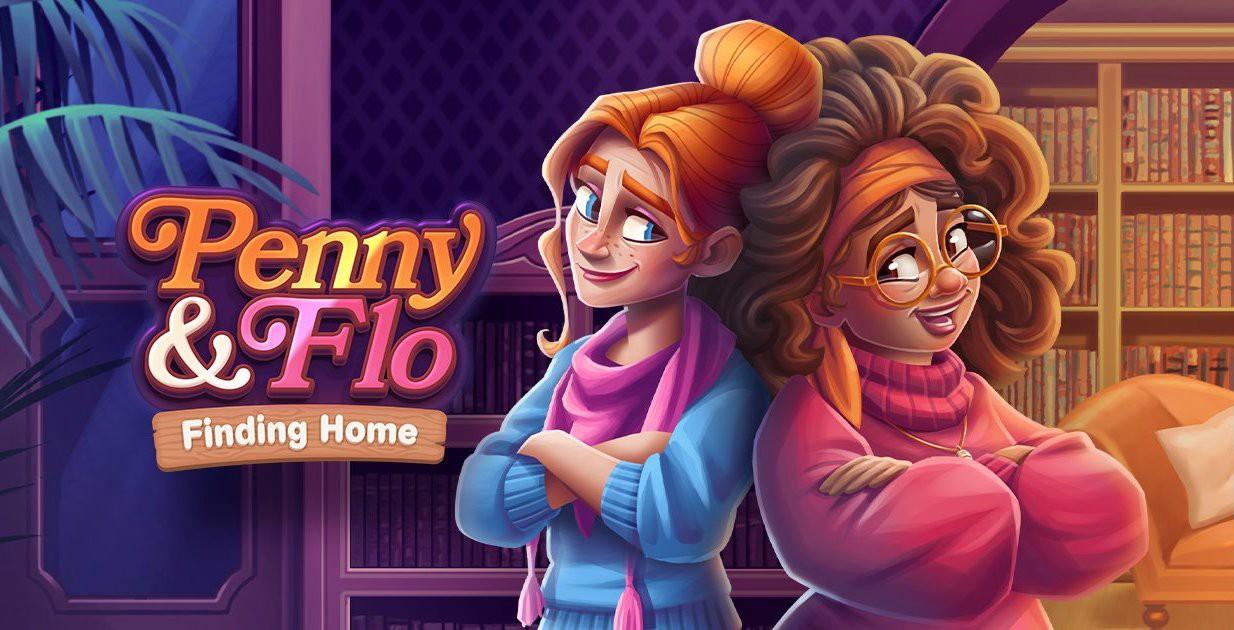Penny & Flo: Finding Home is a f2p tap-to-blast puzzle game, developed and published by Tactile Games, where players help Penny and Flo renovate the mansion of a former Hollywood actress by solving challenging puzzles.
Editor’s Note: This guest post was originally published by Harshal Karvande at Game Design Post. Harshal is a Game Design Lead at Rovio (Small Town Murders), formerly Game Design Lead at Zynga (FarmVille 2).
As a successor to Lily’s Garden, Penny & Flo unravels a related story full of twists and turns with a cast of quirky characters, with similar game mechanics, theme, and visual aesthetics in an attempt to follow up with a strong subsequent game by making it more of the same but different.
More of the Same …
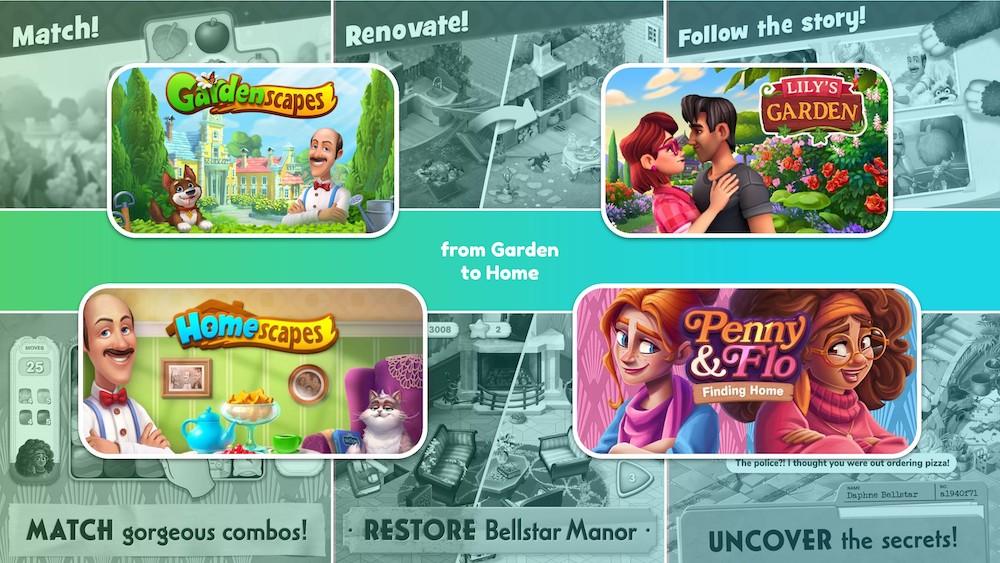
Tactile borrows from the Playrix playbook and moves its next game from renovating the garden (Lily’s Garden and Gardenscapes) to restoring a home (Penny & Flo: Finding Home and Homescapes), keeping intact the invest, express, and expand gameplay loop with a story that touches on mature themes like it’s predecessor.
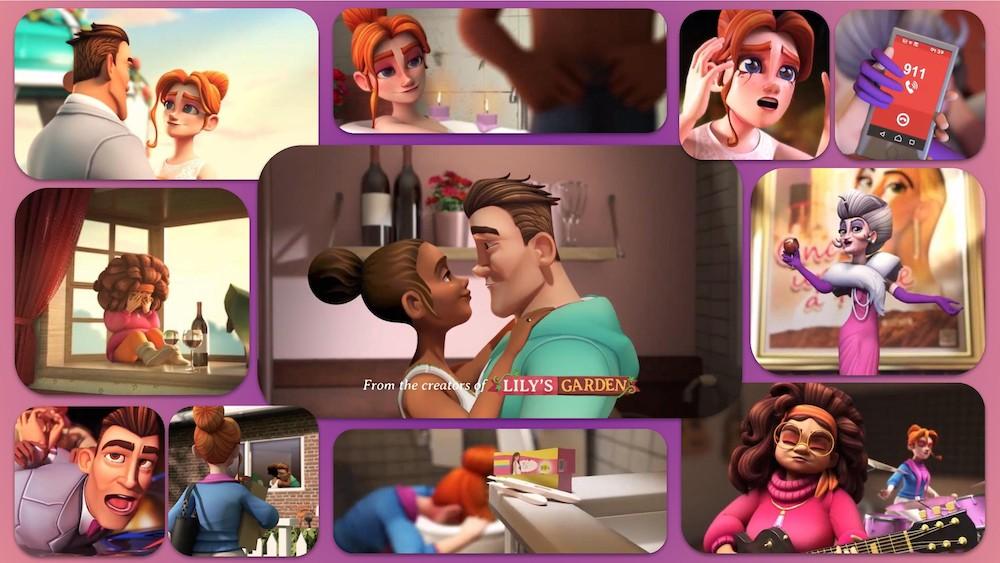
Tactile also continues its successful UA strategy of making short, hard-hitting creatives that showcase a slice of life dramatisation of taboo topics — ranging from infidelity to the follow-up to the now-famous pregnancy AD. Penny & Flo creatives continue to capture overwhelming snippets of love, loss, and relationships in under 15 seconds for virality, suiting their audience who relate to this emphasis on adult themes.
… but Different
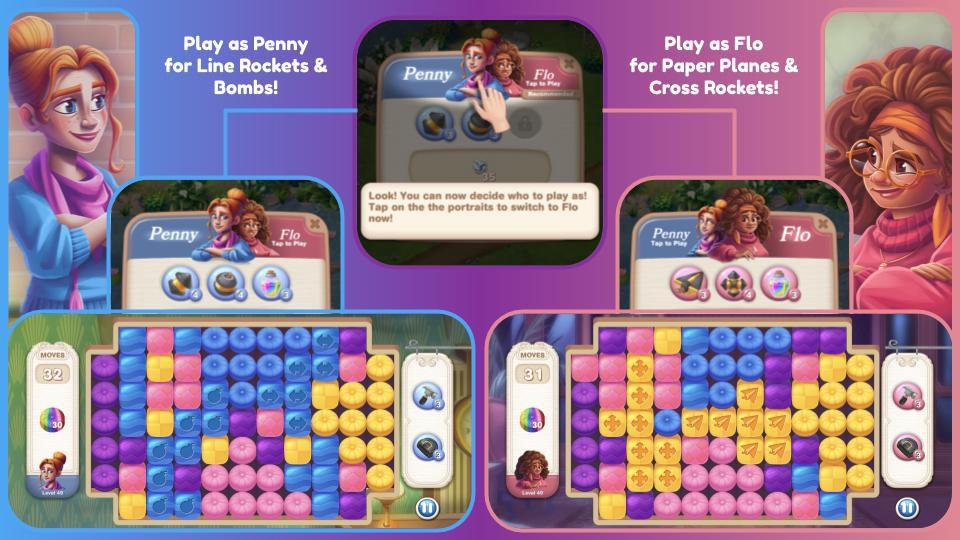
Right off the bat, the biggest difference Penny & Flo brings to the genre of tap and blast puzzle games, and sets itself instantly apart from its predecessor is choosing between the two protagonists, Penny & Flo, before starting a level! This affects the puzzle gameplay at its core — in addition to changing the pre-level power-ups that can be bought at the start of the level, choosing between Penny & Flo affects the power-ups that can be created on the game board.
Playing as Penny gives access to Line Rockets for matching 6–7 tiles (vertical or horizontal line rockets dictated by the shape of the match being made) and Bombs for matching 8–11 tiles. For Flo, matching 6–7 tiles results in Paper Planes (which smartly target level goals when activated) and Cross Rockets for matching 8–11 tiles. Matching 12+ tiles in both cases rewards Magic Flasks that clear all the tiles of a particular color off the board.
Flo’s smart Paper Planes are great for more puzzle-y levels when objects are at hard-to-reach edges on the board, whereas Penny’s Bombs are useful on levels where the goal is to bring objects to the bottom of the board. The choice between them before attempting a level also alleviates some of the frustration that comes from a loss as players can try again with another set of power-ups, sometimes with the game recommending who to pick for a certain level.
Contrasting this with Lily’s Garden, in which players have access to Line Rockets for matching 5–7 tiles, Bombs for matching 8–9 tiles, and the Magic Flask for 10+ tiles showcases a clear edit to the game’s level design possibility space and gameplay dynamics. This makes the moment-to-moment play feel familiar, fun but different between the two titles.
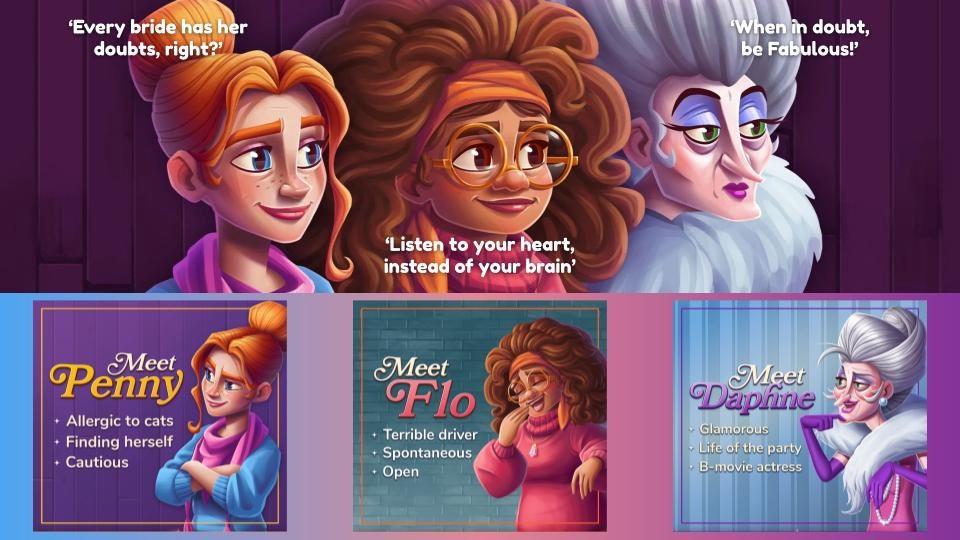
The core gameplay extends to the story involving the two protagonists, Penny & Flo, and shows the studio’s commitment to a different type of female narrative — one which celebrates female friendships and stays away from the more general media portrayal of spiteful women bent on tearing each other down.
Penny is a bride-to-be in her 20s, Flo is her close friend stepping in as her wedding planner in her 40s, and together they get involved in Daphne’s life as a post-glamor B-move actress now in her 80s — covering the different times in a woman’s life in parallel, from Penny’s doubts blossoming from a new romance, dealing with expenses regarding Flo’s son and a passive husband to Daphne who’s seen it all, with the long life of Hollywood glamour behind her.
Making a follow-up to a successful game is precarious: how much should the sequel stray from the game that came before? Do players love the narrative, thematic content, or game mechanics — which ones to alter and which ones to keep the same? Penny and Flo expands on the same fictional universe as Lily’s Garden, in-game and in the marketing, while differentiating itself just enough in its core game mechanics to make it the perfect sequel.

